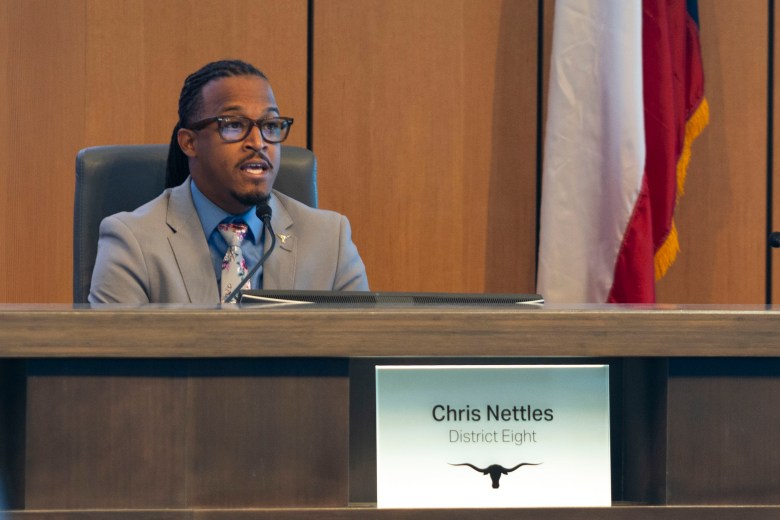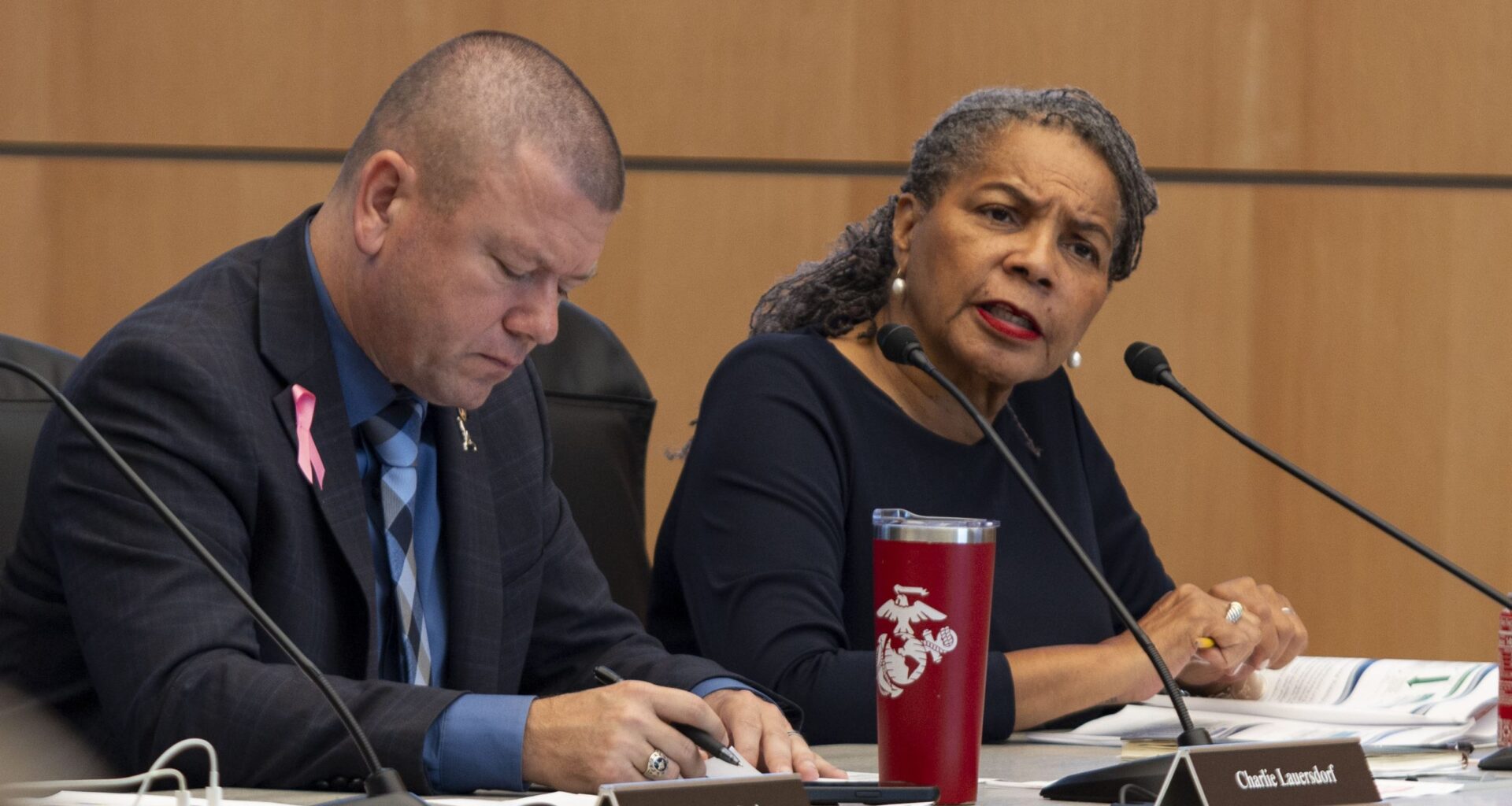To comply with requirements from the Trump administration shutting down diversity, equity and inclusion-related initiatives, Fort Worth’s administrative staff recommended suspending efforts to address racial, ethnic and gender disparities, as well as removing specific economic incentives for minority- and women-owned businesses.
Fort Worth will lose $277.1 million in federal funding if it doesn’t comply, Assistant City Manager Dana Burghdoff said at a June 17 City Council work session.
The council is scheduled to vote June 24 whether to dissolve Fort Worth’s business equity ordinance and halt its economic incentives for Minority- and Women-Owned Business Enterprise certified businesses.
Those policies — headed by the Business Equity Division — aim to “close racial and gender gaps” by contracting with local businesses owned by historically disadvantaged populations.
If council approves the resolution, the policies would be dissolved July 1.
The city is not required to fully disband its Diversity & Inclusion Department, which has broader duties related to fair housing, employment and access to public accommodations.
The move responds to recent decisions from the Supreme Court related to DEI and President Donald Trump’s directive to end “radical and wasteful government DEI programs.”
On Jan. 20, the president signed an executive order banning all federal programs fostering diversity, equity and inclusion, and threatened to cut off federal assistance to local governments that do not comply.
Fort Worth has since received letters from federal agencies that make clear in order to continue receiving funding, the city must verify that it doesn’t use “race, color, national origin, sex, religion and so on, as criteria for participation in programs and services,” Burghdoff told council members.
Fort Worth earns federal grants for departments including aviation, police, park and recreation, rental assistance and emergency management, Burghdoff said.
About $40.1 million in annual federal awards funds 120 city employees across five departments.
Staff expects no city employee to lose their jobs if the recommendations are followed, City Manager Jay Chapa said.
“We’ve looked at it and relooked at it, we’ve been on calls with other cities across the nation, and everyone is facing the same choices,” said City Attorney Leann Guzman.
Staff also recommended establishing a “more robust small business development program” — one that doesn’t use the now-banned requirements — as a potential remedy for local businesses who were relying on the dissolved incentives.
What is Fort Worth’s business equity ordinance?
Fort Worth’s business equity ordinance was written in 2015 and amended in 2020 to outline the city’s intent to “promote equal opportunity” by intentionally contracting minority- and women-owned businesses for projects and services, and setting goals for how many they contract.
The city has certain incentives laid out for certified Minority- and Women-Owned Business Enterprises. To earn the certification, companies can go through regional and state entities such as the Women’s Business Council-Southwest and the Texas Department of Transportation.
The city also offers incentives for local businesses that have earned a Minority- and Women-Owned Business Enterprise certification.
Council pushes back, staff says city faces hard choice
Burghdoff told council members that, if the city did not comply with the federal requirements, it would need to find additional sources of revenue to fill the gap of lost federal funds.
For example, Burghdoff said, increasing the property tax rate as a possible solution would entail an estimated 19.8% bump — or a $320 higher tax bill for a house appraised at $300,000.
Council members Deborah Peoples and Chris Nettles pushed back against the recommendation, saying the thought of dissolving the decades-old programs gave them “heartburn.” Fort Worth adopted its first minority business equity program in 1978.
Peoples said the programs were started “as a remedy to discrimination” that allowed minority communities to build generational wealth. She said that while she understands the city’s financial challenges, she wants to “go back to the drawing board” and find a solution that doesn’t risk sending a signal to minority residents that the city doesn’t care about them.
 Fort Worth City Council member Chris Nettles speaks during a council meeting May 20, 2025, at new City Hall. (Mary Abby Goss | Fort Worth Report)
Fort Worth City Council member Chris Nettles speaks during a council meeting May 20, 2025, at new City Hall. (Mary Abby Goss | Fort Worth Report)
Nettles said the city created the measures to give opportunities to communities of color who had a harder time getting work than other businesses.
“This is a political thing that our federal government is doing, and we are nonpartisan, and so this directly affects people in our communities, how they eat at the table,” Nettles said, adding that he can’t support the resolution.
He told the Fort Worth Report that he’ll look for other avenues — ones that don’t increase the tax rate — to generate the funds lost by not complying.
“When do we take a stand for our city residents and what we believe historically is the right thing to do?” Nettles said.
Burghdoff said the city faces a tight deadline to comply, as some funds are set to be renewed July 1.
Softening blow to small business
Chapa said the city would work with the Black Chamber of Commerce, Hispanic Chamber of Commerce and the Fort Worth Chamber to develop a program that doesn’t leave small businesses of any background behind.
Council member Charles Lauersdorf said the potential change is a chance to educate businesses on Historically Underutilized Business, or HUB, certifications, which are not impacted by the new federal requirements. The certifications are given to businesses owned by historically disadvantaged populations, including women and racial minorities.
He said a majority of HUB-certified businesses in the area are minority-owned and would still qualify for similar incentives.
“In essence, we’re opening up additional opportunities under HUB certification,” Lauersdorf said. “It’s one of those best-kept secrets out there on how HUB certifications work.”
Other cities across the nation have similar Minority and Women Business Enterprise programs, but many have yet to disband them. Orlando disbanded its program earlier in June.
Editor’s note: This story was updated June 19, 2025, to clarify Fort Worth is removing specific economic incentives for businesses certified as Minority- and Women-Owned Business Enterprises.
Drew Shaw is a government accountability reporter for the Fort Worth Report. Contact him at drew.shaw@fortworthreport.org or @shawlings601.
At the Fort Worth Report, news decisions are made independently of our board members and financial supporters. Read more about our editorial independence policy here.
Related
Fort Worth Report is certified by the Journalism Trust Initiative for adhering to standards for ethical journalism.
Republish This Story
Republishing is free for noncommercial entities. Commercial entities are prohibited without a licensing agreement. Contact us for details.
